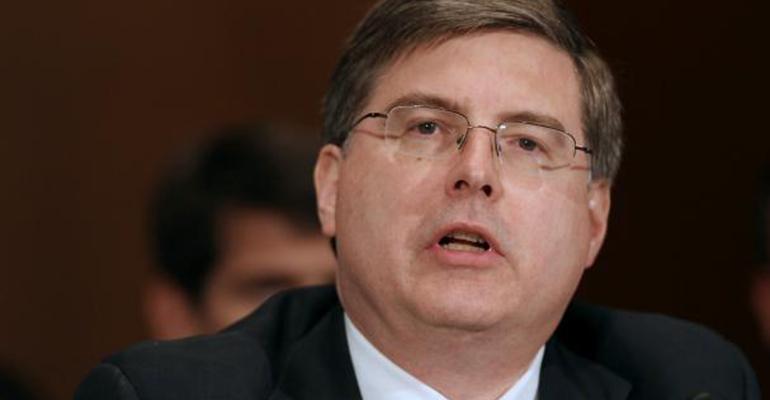The Financial Industry Regulatory Authority seems to have found a formula for predicting future misconduct of its member firms. The self-regulatory organization proposed a new rule earlier this month that would identify broker/dealers that present the greatest risk to investors.
And based on back-testing of the criteria that FINRA has come up with, the firms that were caught in the funnel might have had up to nine times the number of misconduct events in the interim period, said FINRA President and CEO Robert Cook, speaking at the organization’s annual conference this week.
“Say we had this two or three or four years ago, the number of misconduct events that happened since was quite high,” he said. “It seems to be, at least on first blush, we have the right criteria to identify firms that, if we have identified them before, would’ve presented risk of future misconduct events.”
The initiative is part of an ongoing process the regulator has been engaged in to address concerns about firms with a history of misconduct. FINRA issued three notices on this issue last year; the latest one focuses primarily on broker/dealers.
“It’s really trying to look at the question of, whether firms that have a cluster of brokers with high levels of misconduct and the firm itself has high records of misconduct,” Cook said.
FINRA will look at numeric thresholds based on six categories of events or conditions, including registered person adjudicated events, registered person pending events, registered person termination and internal review events, member firm adjudicated events, member firm pending events, and registered persons associated with previously expelled firms. It will analyze the number of these events relative to others in the firm’s peer group.
Cook said less than 2% of firms in the industry potentially fall into this category.
“Most firms are really working hard to try to get it right and don’t have significant clusters of brokers with negative history,” he said.
For the firms that are identified, FINRA will have a conversation with them about potential restrictions on the types of business activities that present the greatest risk to investors. Ultimately those firms may be required to set aside some money in a separate account, like a reserve, available to deal with future claims against the firm, including potentially unpaid arbitration awards.
“There are other ways in which we look at the nature of your business and say, ‘You know, you might be fine, but based on track record, back-testing, the sorts of risks that we’re looking at—you’re presenting greater risk, so you have to put aside greater capital,’” Cook said.
FINRA is currently accepting comment letters on the proposed rule, due by July 1.





